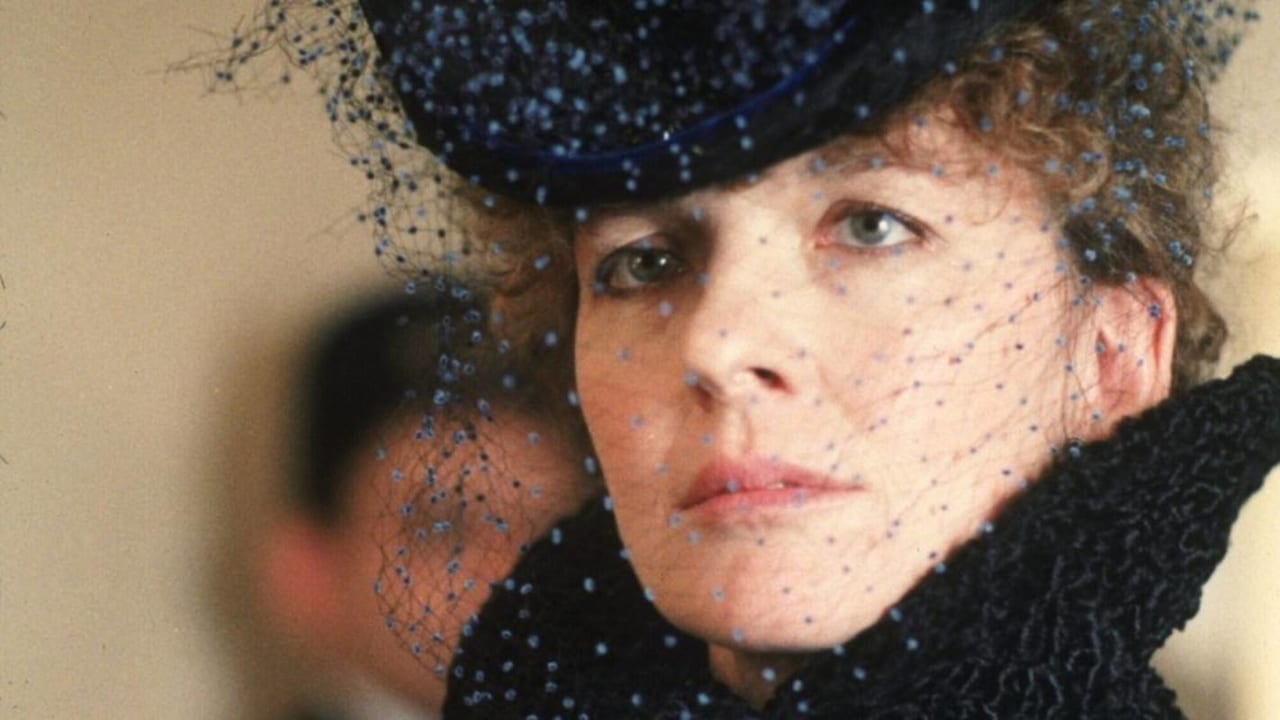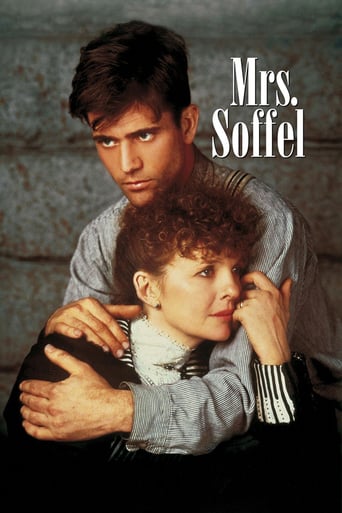

Mrs. Soffel is one movie with a fine cast that I missed in the 1980's so when I saw this move as a $2 DVD, I snapped it up. It is a period drama and romance with interesting sets depicting Pittsburgh in 1901 and the prison for death row brothers, Ed and Jack Biddle. They are befriended by Diane Keaton, as Mrs. Soffel, the well-meaning wife of a prison warden played by Ed Hermann. The Biddle brothers are Mel Gibson and Matthew Modine as Ed and Jack Biddle. They are likable and good-looking and far from the image of hardened criminals, thus winning the hearts of working people, women especially. Mrs. Soffel is a Christian activist, who visits them with Bibles in hand trying to comfort them. She is a bright, middle class woman with a hard-working, responsible husband and three children. But Mrs. Soffel, who suffered from depression, is not content. Diane Keaton portrays a woman of her time who wants to go beyond her comfort zone and live a meaningful life. Thirty eight at the time of the movie, Keaton's age is about right to portray Mrs. Soffel, who is reaching middle age with her children getting older but she is a passionate woman whose own husband is focused on his career. Mrs. Soffel falls deeply in love with Ed Biddle. No small matter for a woman of her time. Both Diane Keaton and Mel Gibson were clearly chosen for their star appeal. Gibson is 10 years younger at 28, so this makes the romance more scandalous for the early 1900's and possibly titillating for a modern audience. As a period drama, it falls short because the romance gets the upper hand. Nevertheless, the prison sets, the on-location train travel and views of the horse drawn sled in the countryside are quite effective. I did like Matthew Modine as Jack Biddle, the less mature but more fun-loving younger brother. Mel Gibson cares deeply for his brother and wants him to be spared the noose; he feels it's his fault. He also is the true romantic who falls head over heels for Kate, Mrs. Soffel, writing poems about her and showing as deep an affection as he can behind the bars that separate them. Ed Hermann gives a good performance as Mrs. Soffel's husband, a man who performs his roles as husband and father, while awkwardly carrying on as prison warden.
... View Moreoh the power of sex with a young piece of stuff (Mel Gibson) when you are a 35 year old woman with an unloving, ungrateful, old and ugly husband! i, also, chanced on this film when little other viewing was on. i could easily have changed channel,as the beginning of the film was uninspiring, but i was interested to see Mel Gibson in one of his early roles, in which he looks much younger than the 28 years he was at the time. i was surprised not to have seen the film, Mrs. Soffel, before, it has been around since 1984. Mel is not one of my favourite actors, but he does a good job with the role of a hot,charming guy, and believable performance in persuading Mrs. Soffel to help him escape prison. well, what a waste it would be to hang him! the film helped me to understand why so many women fall for and marry convicted murderers with life sentences. sexual chemistry can go right to a woman's head! i did wonder if reality kicked in for Kate Soffel (brilliantly played by Diane Keaton) when the sheriff's men started to chase and shoot at them! or are we to believe her life before was so dreadful she would rather die? ladies, the moral is, keep well away from temptation, before it is too late. the film had the makings of being a real weepy, and i was prepared to get the tissues out, but the script was not verbally in-depth enough to stir my heart. i wept buckets at Mel Gibson's performance in Braveheart. maybe if the ending had been more heart rendering this film would have had more attention. still, worth watching for two good acting performances. a film for the girls. female writer.
... View MoreThis is one of the best American films of the 1980's. It is based on the true story of the wife of the Allegheny County Jail warden, Kate Soffel (Diane Keaton) who falls in love with a sexually alluring working class inmate, Ed Biddle (Mel Gibosn) in turn of the century Pittsburgh and plots to help him and his brother, Jack (Matthew Modine) escape. Director Gillian Armstrong and screenwriter Ron Nyswaner brilliantly decided to deal with the story in an elliptical and indirect way. We aren't telegraphed anything. We don't know if the Biddle's are innocent. We don't really understand why Kate falls in love with Ed. We aren't directly told why Kate is so disappointed in her life. The filmmakers takes this personal story and turns it into a progressive feminist mood poem. It is extraordinary to see a post 1970's American film this complex and this progressive. Diane Keaton gives a remarkably complex and nuanced performance. The film is almost unimaginable with her in the leading role. Early in the film she communicates the torment and longing of Kate in a way that warrants comparisons with the greatest acting of the silent cinema. We see the depression and desperation in Kate's face in a way that rivals Maria Falconetti in Dryer's THE PASSION OF JOAN OF ARC and Lilian Gish in Victor Sjöström's THE WIND and D.W. Griffith's BROKEN BLOSSOM'S. One of the remarkably subversive aspects of the film is its relationship to Kate's Christianity (which becomes particularly pointed watched in the contemporary context and thinking about Mel Gibson's PASSION OF THE Christ fundamentalism). She is a bit scary creeping about the prison trying to sell doomed men on a faith that will set them free. The suggestion is that it is this same faith, or more precisely the way Christianity is used as a structuring device of patriarchy, that has trapped Kate into her own life sentence. When she becomes aroused by Ed everything shifts, she looks different, some kind of remarkable radiance shines forth from Keaton's face. Her bible lessons become a pretext for sexual release. She literally makes love to Ed through the bars with his brother nearby, which adds a remarkable charge of voyeurism to the proceedings. Mel Gibson has never been photographed more sensually then in this film. There is a scene late in the film, in which, he is lying in bed with the sunlight playing on his face that in which his beauty is almost angelic. He's photographed and contextualized the way male directors have often shot young classically beautiful women (think of Julie Christie in David Lean's Dr. ZHIVAGO, Joseph Losey's THE GO BETWEEN, or Donald Cammell's DEMONSEED or Faye Dunaway in Roman Polanski's CHINATOWN or Sydney Pollock's 3 DAYS OF THE CONDOR). Armstong also allows Gibson's sense of humor to peek out to suggest layers to this character. We never totally trust Ed, yet we root for him or at least root for Kate's vision of him.The cinematography by Russell Boyd is exceptionally original and the production design emphasizes the grimy oppressive nature of an industrial town. this was actually a critique of the film at the time of its release. It was too dark, mainstream reviewers said. Well actually its historically accurate. Pittsburgh was so soot filled and grimy that the street lights had to stay on all day long! This is the great environmental tragedy of the industrial revolution. Armstrong uses this look for strong dramatic effect and creates a kind of mood poem here that reminds me of the best work of Antonioni and of Werner Herzog remarkable NOSFERATU. Like in that great film we can never quiet situate ourselves, the oppressive dim look of the film suggests we might be in a kind of waking nightmare. Is the environment part of Kate's psychic and physical affliction? Who could be happy or healthy living in this kind of relentlessly dismal environ? When we finally leave Pittsburgh Boyd and Armstrong present us with some of the most lovingly photographed images of sun and snow in American cinema. The viewer so ready for these brighter images that they alter our the way we connect to the story. That this film was neither a critical nor a commercial success is a tragedy for the contemporary Hollywood cinema. Its failure became one of the many excuses for the overwhelming turn to the banal cookie cutter cinema that Hollywood is known for today. One hopes that cinephiles everywhere will reclaim ambitious films like MRS. SOFFEL as an example
... View More"Mrs. Soffel", a movie much overlooked in the mid 1980s, deserves a reevaluation at present. With the advent of so many successful period films, "Mrs. Soffel" can be seen as a predecessor of sorts. The movie, a true story filmed on location in Pittsburgh, PA, is one of exquisite beauty and restrained passion. The emotions evoked by it are comparable to those produced by the more modern "The Age of Innocence" and "The Remains of the Day". The doomed couple, played by Diane Keaton and Mel Gibson have an extraordinary chemistry which smolders throughout the entire film. In addition, the cinematography is beautiful (for something filmed in 1984, it's almost remarkable how effective the atmosphere is!). Do not look towards this movie if you are seeking unbridled romance or breath taking action. The rewards of "Mrs. Soffel" are far more cerebral.
... View More